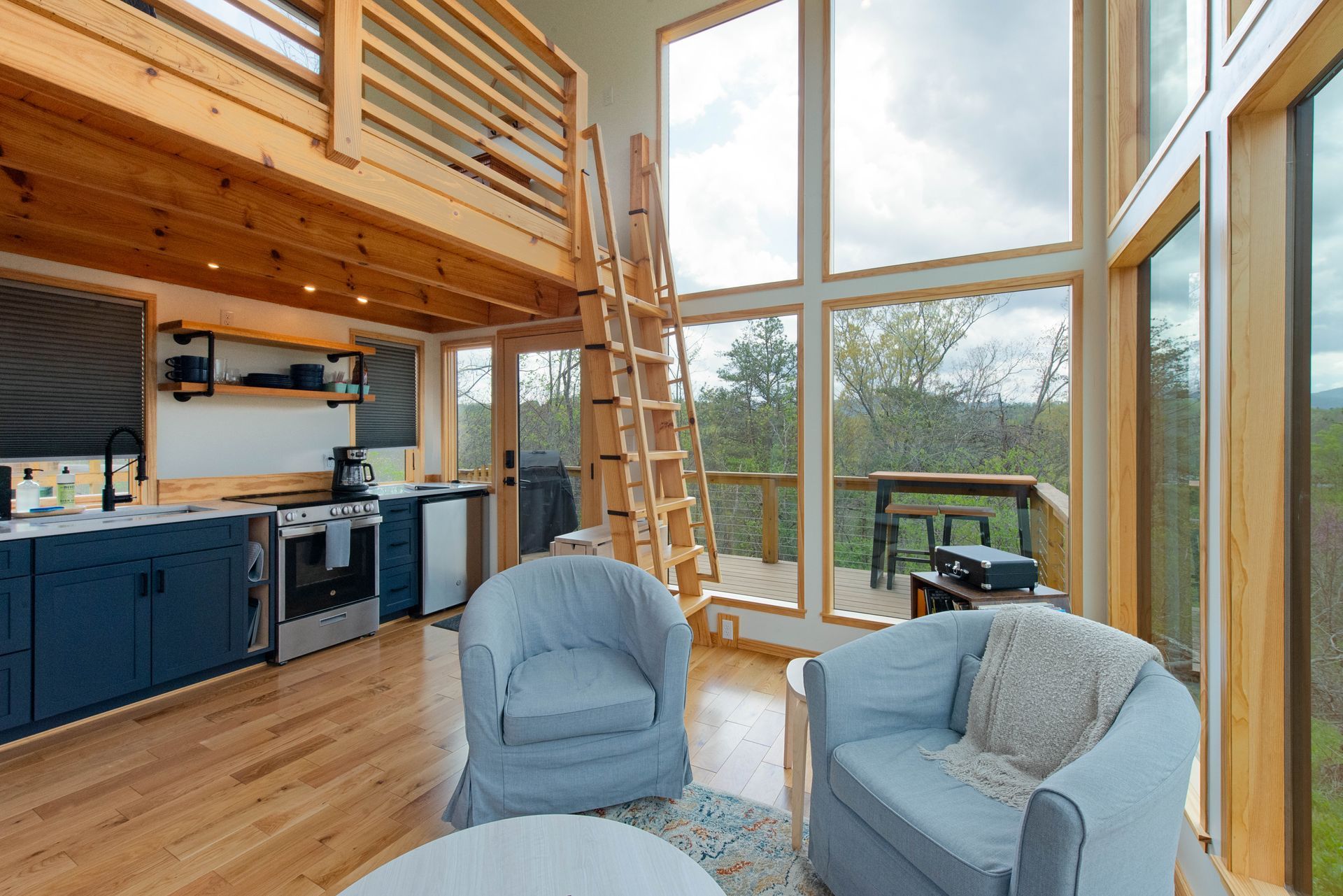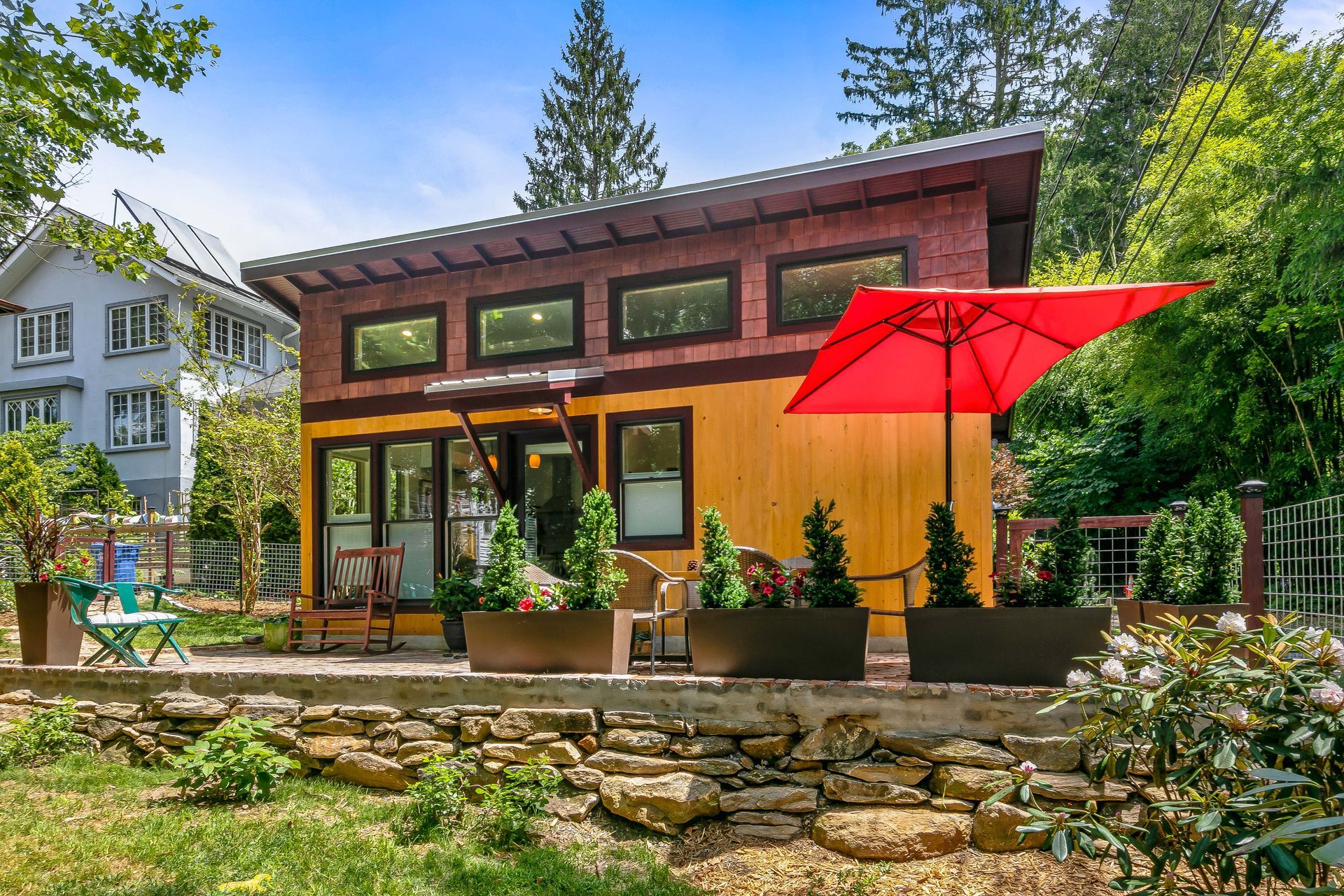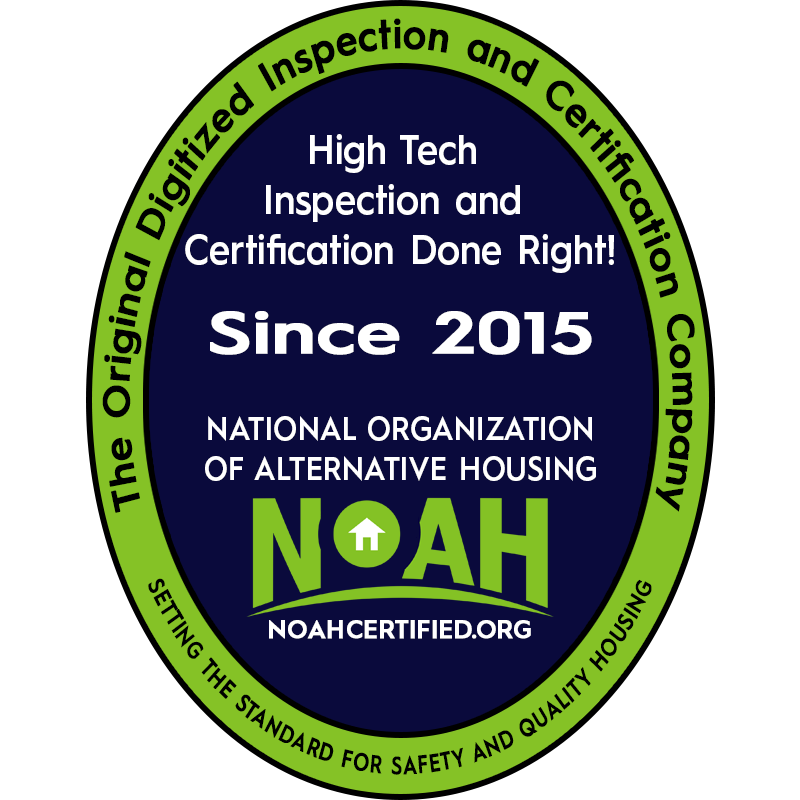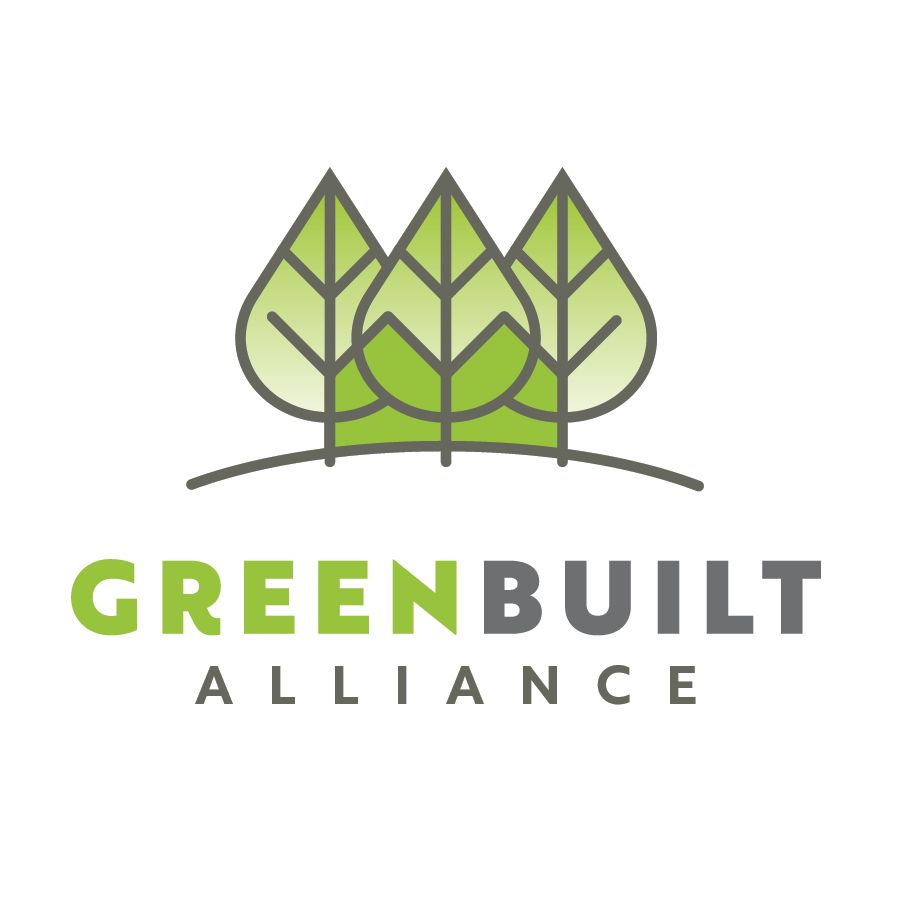Tiny Home Rules and Regulations in North Carolina
A simple NC county guide to get you started.
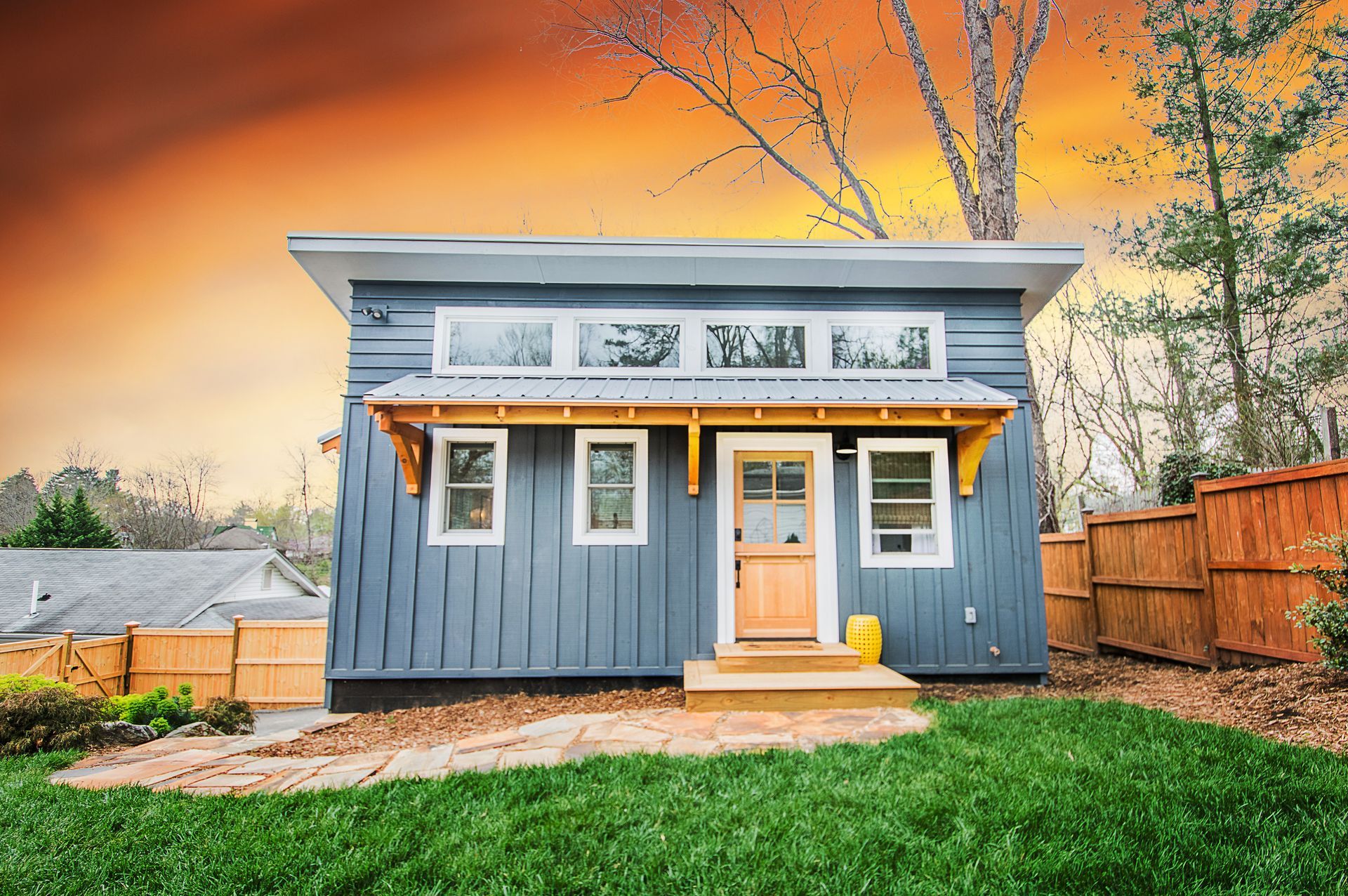
Building a tiny home in North Carolina is an exciting journey, but before you get started, it's important to understand the Tiny Home Rules and Regulations in North Carolina. Knowing these guidelines will help you move forward smoothly and avoid any surprises along the way.
In this post, we’ll guide you through the Tiny Home Rules and Regulations in North Carolina so you can confidently move forward with your tiny home plans. Remember, these are simply guidelines to get you started in doing your own research. Please check with your local building department to inquire about permits to receive the most specific and up to date requirements.
What Counties in North Carolina Allow Tiny Homes?
Alexander County, North Carolina
In Alexander County, your tiny home needs to align with North Carolina’s building codes. Your home should be at least 150 square feet for one occupant, with an extra 100 square feet for each additional person. Each habitable room must be at least 70 square feet. Keep in mind, RVs and park models are generally not allowed unless they have a dual registration sticker, which qualifies them as modular homes.
Brunswick County, North Carolina
In Brunswick County, tiny homes must meet North Carolina’s state regulations, ensuring that each habitable room—whether it's for living, sleeping, eating, or cooking—has at least 70 square feet of space. It’s also important to make sure your tiny home complies with any additional local regulations.
Buncombe County, North Carolina
In Buncombe County, tiny homes must meet state building standards and minimum floor area requirements. Keep in mind, travel trailers and park models aren’t allowed as permanent residences, even on a fixed foundation—they can only be used as temporary homes for up to 180 days.
In Asheville, tiny home regulations align with Buncombe County’s standards. Travel trailers and park models aren’t allowed as permanent residences.
Burke County, North Carolina
In Burke County, tiny homes are permitted as long as they meet North Carolina’s state residential building code. This means your tiny home must include at least one room with a minimum of 70 square feet of habitable space.
Chatham County, North Carolina
Chatham County has fully embraced the same regulations as the rest of North Carolina when it comes to tiny homes.
Cleveland County, North Carolina
Cleveland County follows North Carolina’s state regulations for tiny homes.
Cumberland County, North Carolina
In Cumberland County, mobile homes are considered dwelling units, and your tiny home must meet the county’s specific size requirements. You’ll need at least 150 square feet of total floor space, with any additional rooms requiring a minimum of 70 square feet. Kitchens can be slightly smaller, at 50 square feet.
Fayetteville, NC
Fayetteville has clear requirements for tiny homes. Your tiny home must have at least one main room with a minimum of 120 square feet and must be placed on a permanent foundation. The combined kitchen and dining area should be at least 80 square feet, and bedrooms need to be 50 square feet—though for children under 12, 35 square feet is sufficient.
Davidson County, North Carolina
In Davidson County, your options for tiny homes include mobile homes, manufactured homes, and outbuildings, which can all serve as single-family dwellings. Park models are treated differently and only permitted temporarily when your main home is uninhabitable.
Before you dive into your tiny home plans, it's smart to consult with your local building or zoning department to get the details on what's allowed in your area.
Davie County, North Carolina
In Davie County, tiny homes are typically required to meet the North Carolina State Building Code, which specifies a minimum of 70 square feet per habitable room. While the guidelines for different structures vary, the state’s building code generally supports tiny homes. It’s a good idea to consult with the Planning and Development Services Department to ensure you have the most accurate information before moving forward with your tiny home plans.
Edgecombe County, North Carolina
In Edgecombe County, your tiny home needs to meet North Carolina's state guidelines, which require at least 150 square feet for one person and an extra 70 square feet for each additional occupant. Note that RVs and park models are only allowed if they have a dual registration sticker, showing they comply with the NC modular construction program.
Gaston County, North Carolina
In Gaston County, there are clear rules for tiny homes. Manufactured or mobile homes can be used as permanent residences if they’re at least 320 square feet. However, trailers, RVs and motor homes are restricted to temporary use only.
Gastonia, NC
In Gastonia, the rules for tiny homes are strict. For mobile, manufactured, or modular homes to be recognized as dwellings, they must meet North Carolina’s minimum requirement of 70 square feet. RVs, motor homes, and travel trailers are only allowed for temporary use.
Gates County, North Carolina
If you're planning to set up your tiny home in Gates County, North Carolina, it's important to know that their requirements mostly align with the NC state building code. That means your tiny home needs at least 70 square feet of livable space. Since Gates County doesn’t have specific rules outside of this, we recommend getting in touch with their Planning and Development Department to make sure your tiny home meets all the local guidelines.
Granville County, North Carolina
If you’re planning to set up a tiny home in Granville County, North Carolina, you'll need to follow the NC state residential building code. One key rule is that at least one room in your tiny home must be at least 70 square feet.
Guilford County, North Carolina
If you’re planning to settle in Guilford County with your tiny home, there are a few key rules to know. Tiny homes on wheels are treated as recreational vehicles, so they’re only allowed for temporary use. For a permanent tiny home, each room needs to have at least 70 square feet of living space, following state regulations.
Greensboro, North Carolina
Greensboro follows the North Carolina Uniform Residential Building Code, so each room in your tiny home must have at least 70 square feet of living space. When it comes to RVs, whether they’re allowed for permanent living isn’t crystal clear, so it’s a good idea to check in with the local planning department for the latest info.
High Point, North Carolina
High Point is tiny home-friendly, but there are a few rules to keep in mind. Your tiny home should be between 400 and 600 square feet. As for using an RV permanently, the guidelines are unclear, so it's smart to check with the City of High Point to ensure your park model tiny home is approved..
Halifax County, North Carolina
In Halifax County, tiny homes are allowed, but they follow an older version of the state building code. Your home needs at least one room that's 150 square feet, with any additional rooms (except the kitchen) being at least 70 square feet. It’s a bit different here, so make sure your plans fit these requirements!
Haywood County, North Carolina
In Haywood County, tiny homes are welcome, but they must meet the NC State Building Code. This means you’ll need at least one habitable room that’s 70 square feet or more.
Iredell County, North Carolina
In Iredell County, tiny homes are allowed as long as they meet the state’s requirements. Each habitable room in your tiny home must be at least 70 square feet.
Jackson County, North Carolina
In Jackson County, tiny homes are welcome as long as they meet the state’s regulations. Each room in your tiny home needs to have at least 70 square feet of space per occupant.
Lenior County, North Carolina
Lenoir County permits tiny homes as long as they adhere to North Carolina’s state building code for residential structures. This includes ensuring each habitable room is at least 70 square feet.
Mecklenburg County, North Carolina
Mecklenburg County welcomes tiny homes, but there are some important guidelines to keep in mind. While RVs and mobile homes designed for temporary stays aren’t allowed as permanent residences, mobile and manufactured homes that meet North Carolina’s standards can be used long-term.
Charlotte, North Carolina
In Charlotte, tiny homes are permitted as long as they comply with North Carolina’s state regulations.
Montgomery County, North Carolina
In Montgomery County, trailers can be used as permanent homes, but there are some specific rules to follow. The NC state building code requires a minimum of 150 square feet of floor space for one occupant.
Nash County, North Carolina
In Nash County, tiny homes are allowed as long as they meet the state guidelines. You’ll need at least one room that’s 120 square feet, with any additional rooms being at least 70 square feet.
Onslow County, North Carolina
Onslow County allows tiny homes as long as they meet North Carolina's state regulations. While RVs can't be used as permanent residences, any tiny home or structure is permitted if it includes at least one room that’s 70 square feet.
Pitt County, North Carolina
In Pitt County, you can enjoy tiny living as long as your home meets North Carolina’s Residential Code. Whether you build it off-site and have it delivered or construct it locally, your tiny home needs to be inspected and certified through the North Carolina Modular Construction Program. Keep in mind that if your tiny home is on a trailer with wheels, it will be classified as an RV, which isn’t allowed as a permanent residence.
Rockingham County, North Carolina
Rockingham County allows tiny homes, provided they meet the NC state residential building code, which requires at least one room to be 70 square feet.
Rowan County, North Carolina
In Rowan County, tiny homes are allowed, but there are some important rules to follow. Manufactured and mobile homes must be at least 320 square feet and built on a permanent chassis. However, RVs aren’t permitted as permanent residences.
Scotland County, North Carolina
In Scotland County, tiny homes are single-family structures between 200 and 699 square feet. If your tiny home is on wheels, it's classified as an RV and cannot be used as a permanent residence.
Stokes County, North Carolina
You're in luck in Stokes County, as they follow the North Carolina state building code for tiny homes.
Surry County, North Carolina
Surry County allows tiny homes as long as they meet North Carolina’s state regulations.
Yadkin County, NC
In Yadkin County, tiny homes must follow the NC State Building Code, which includes a requirement for each habitable room to have at least 70 square feet of floor space.
Cities and Towns in North Carolina That Welcome Tiny Homes
Cary, North Carolina
In Cary, tiny homes are welcome as long as they comply with North Carolina’s state building codes.
Concord, North Carolina
In Concord, tiny homes are good to go as long as they meet North Carolina’s state guidelines. If you're thinking about setting up a tiny home here, just make sure you follow the state rules.
Holly Springs, North Carolina
In Holly Springs, tiny homes, including mobile and manufactured options, are allowed if they are at least 320 square feet and built on a permanent foundation. However, they can't be used as accessory dwelling units (ADUs) unless it's for temporary family care.
Raleigh, North Carolina
In Raleigh, tiny homes are allowed, and getting started is easy. You can visit their website to apply for a permit and ensure your tiny home meets all the local requirements.
Rocky Mount, North Carolina
In Rocky Mount, tiny homes are welcome as long as they follow the NC State Building Code and meet the standards of the NC Modular Construction Program for single-family homes.
Is a Permit Required for Your Tiny Home in North Carolina?
In North Carolina, getting a permit is usually part of the process when building or placing a tiny home. The specifics can differ depending on your location, so it's important to check with your local zoning or building department.
They can guide you on the requirements, costs, and where to apply, helping you keep your tiny home project on track and hassle-free.
Understanding the Tiny Home Rules and Regulations in North Carolina is essential for achieving the luxury tiny home experience you deserve. At
Nanostead, located in Marshall, North Carolina, we specialize in crafting high-end, luxurious tiny homes that are not only stylish but built to stand the test of time.
With a proven track record of building exquisite homes in Asheville, we offer custom builds, design services, and expert consulting to make your dream home a reality.
Whether you're seeking a
primary dwelling or a luxurious
tiny home on wheels,
contact us today to start your journey.
Nanostead Blog
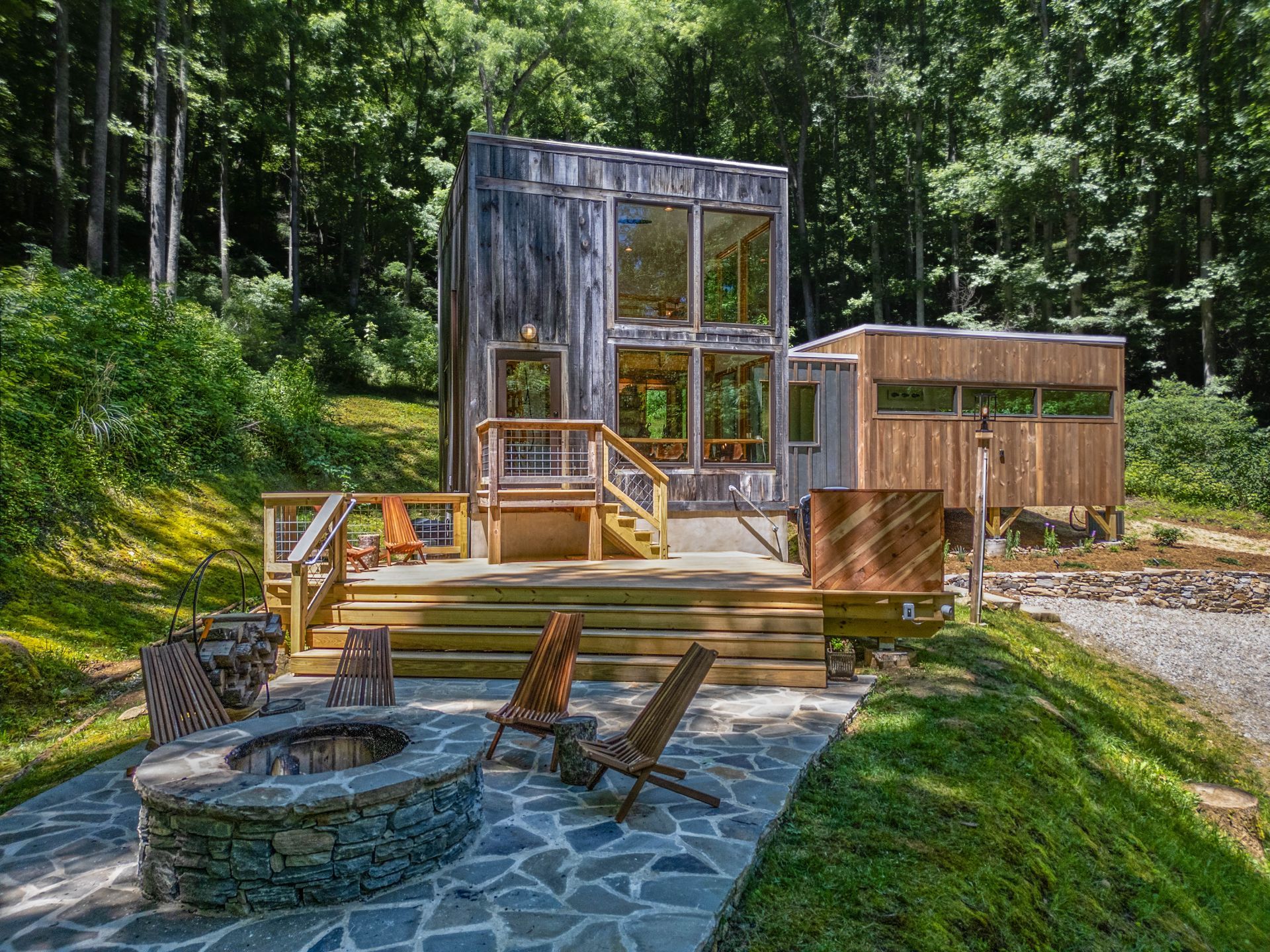
ADDRESS
806 Walnut Creek Road, Marshall, North Carolina 28753, United States
Nanostead LLC | Designed and Built by quantumhawkseo.com

